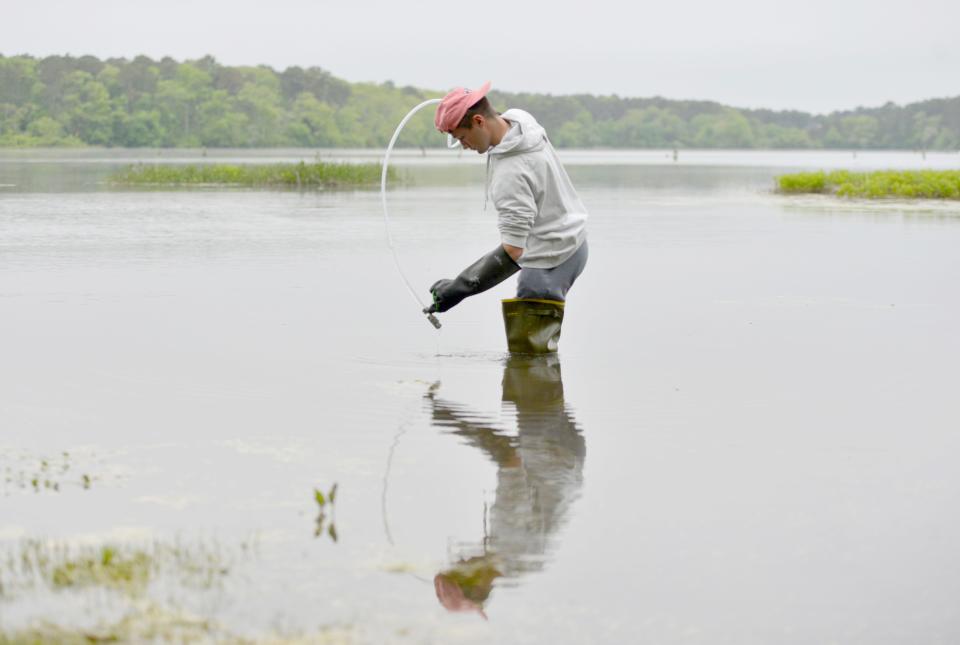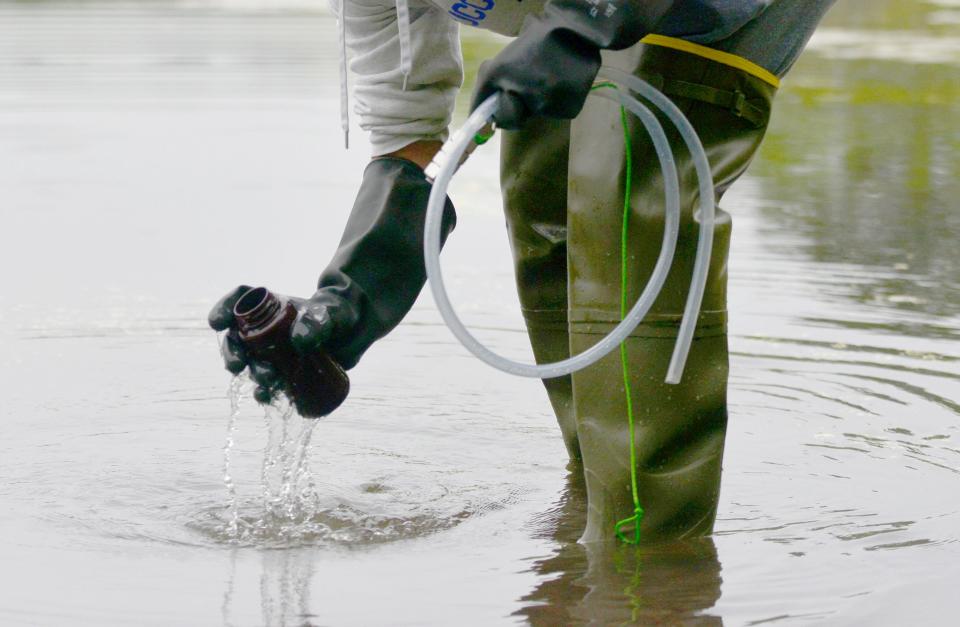If you’re a fan of swimming in Cape Cod ponds, or your pet has been known to take a dip, it’s a good idea to keep up-to-date with the latest cyanobacteria monitoring information.
The Association to Preserve Cape Cod (APCC), along with volunteers, pond associations, towns and the state, is monitoring more than 100 freshwater ponds for concentrations of cyanobacteria (blue-green algae) and toxins produced by the bacteria.
These toxins can affect the liver and nerves, and cause sickness in people and animals.
When levels rise, association staff members alert towns. The towns then may post a prohibition on swimming and other activities in the pond until the algal population drops.

What causes blue-green algae blooms?
The blooms usually occur in the late summer, fueled by warm water or high levels of nutrients from fertilizers, runoff or wastewater seeping through the soil. But Cape ponds remain warm into the fall and algal blooms have occurred as late as December, according to officials.


Here are the Cape Cod ponds under alert or watch for cyanobacteria:
Orleans
Boland Pond in Orleans is under a public health advisory after a sample was taken on May 29. Observed scum was confirmed to be cyanobacteria. The public is advised not to swim in the pond or drink the water. Keep pets away. If you come into contact with the water, rinse off immediately.
Crystal Lake in Orleans is a pond of concern after a sample was taken on May 29. According to the APCC, the potential concern status means: “At the time and place of sampling, results indicate either moderate risk for potential exposure to cyanobacterial toxins approaching but below state standards, or a likelihood for increasing cyanobacteria risk over the next days to weeks.”
NOTE: If you notice pond water is scummy or discolored and may have a strong odor, the association advises the public to avoid contact with the water. If you see what might be a suspicious cyanobacteria bloom, notify your local health department and send a photo to [email protected] noting the location, date and time.
Eric Williams, when not solving Curious Cape Cod mysteries, writes about a variety of ways to enjoy the Cape, the weather, wildlife and other subjects. Contact him at [email protected]. Follow him on Twitter: @capecast.
The Cape Cod Times is providing this coverage for free as a public service. Please take a moment to support local journalism.
This article originally appeared on Cape Cod Times: Cape Cod cyanobacteria report: Latest updates from ponds and lakes
Source Agencies



